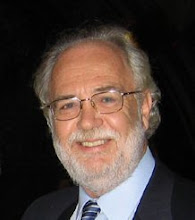When I first came across the term Web 2.0 about two years ago I thought that it referred to a completely new version of the World Wide Web, as this is what the appendage of a version number to a product’s name normally means. I was surprised to find that it means nothing of the sort. The term arose as the name of a series of conferences, the first of which was held in 2004:
http://www.web2con.com
See also:
O'Reilly T. (2005) What is Web 2.0? Design patterns and business models for the next generation of software:
http://www.oreillynet.com/pub/a/oreilly/tim/news/2005/09/30/what-is-web-20.html
See also the Wikipedia article on Web 2.0:
http://en.wikipedia.org/wiki/Web_2.0
Essentially, Web 2.0 appears to be an attempt to redefine what the Web is all about and how it is used, for example new Web-based communities using wikis, blogs and social networking websites that promote collaboration and sharing between users. In other words, it signifies a more democratic approach to the use of the Web. In order to achieve this, Web-based applications have to work more like desktop applications, allowing Web users to use the Web in much the same way as they would use applications on their desktop computers, e.g. storing and organising their materials. MySpace, YouTube, Flickr and del.icio.us are examples of websites that enable users to do this.
To what extent the concept of Web 2.0 is truly innovative is a matter of debate, as it is broadly in line with the concept of the Web as defined by its inventor, Tim Berners-Lee, nine years ago:
“The dream behind the Web is of a common information space in which we communicate by sharing information. Its universality is essential: the fact that a hypertext link can point to anything, be it personal, local or global, be it draft or highly polished. There was a second part of the dream, too, dependent on the Web being so generally used that it became a realistic mirror (or in fact the primary embodiment) of the ways in which we work and play and socialise. That was that once the state of our interactions was on line, we could then use computers to help us analyse it, make sense of what we are doing, where we individually fit in, and how we can better work together.”Berners-Lee T. (1998) The World Wide Web: a very short personal history:
http://www.w3.org/People/Berners-Lee/ShortHistory.html
So Web 2.0 is not a break with Web 1.0 but a transition. Is the term Web 2.0 therefore essentially meaningless? Is it just a way of convincing the media and investors that something fundamentally new has been created? Or is it just an example of the continuous development of well-established technologies?
Reactions?
Wednesday, 25 April 2007
Subscribe to:
Post Comments (Atom)





2 comments:
I have made an effort to update the description of Web 2.0 as succinctly as I can, with definitions, links and examples at the ICT4LT website in Module 1.5. See Section 2.1, headed "What is Web 2.0?" at:
http://www.ict4lt.org/en/en_mod1-5.htm
Am I on the right track? Bouquets and brickbats gratefully received.
An email that I received from a colleague contributing to another discussion list at the Times Educational Supplement website has pointed me in the direction of an article that says that Web 2.0 is not all good news:
The Observer, UK:
"Enough! The Briton who is challenging the Web's endless cacophony"
by
David Smith, Technology Correspondent
Sunday, 29 April 2007
It focuses on a book by Andrew Keen, entitled "The Cult of the Amateur", which is a damning condemnation of Web 2.0 and its manifestations:
http://observer.guardian.co.uk/uk_news/story/0,,2068107,00.html#article_continue
Here is a flavour of what the article is about:
"Keen, who still lives in California and works in technology, questions the euphoria surrounding the rise of citizen journalism, online communities such as MySpace and user-generated websites including online encyclopedia Wikipedia and video-sharing site YouTube."
Having read your description of Web 2.0, I think it's clear and concise.
However, you'll need to ask a more technically minded person to determine its accuracy.
Post a Comment